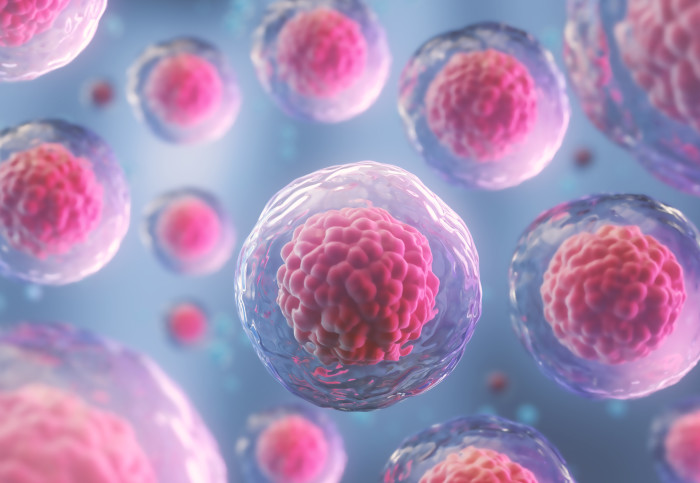Cellular partnerships and EU innovators: News from the College

Here’s a batch of fresh news and announcements from across Imperial.
From new ways to observe cellular events that are not currently ‘visible’, to European accolades for a system created to help physically disabled people, here is some quick-read news from across the College.
Cellular partnership
Dr Armando del Rio Hernandez has created a unique platform of biophysical tools to study how mechanical cues are transduced into chemical signals in health and in cancer.
Now his team has been awarded an Innovate UK grant to launch a partnership with Manchester Biogel Ltd to use this platform to develop organ-like matrices for studies and tools to observe hard-to-see cellular processes.
Dr del Rio Hernandez, of Imperial’s Department of Bioengineering, said: “This partnership will allow us to join our technologies to observe cellular events that are not currently ‘visible’. Learning about these cellular processes should provide fundamental knowledge for the development of new therapies. Moreover, the proposed outcomes of this partnership will create a unique platform for 3D cell biology studies.”
Machine learning and medicine

Identifying causal relationships in medicine and AI could help us better understand some of the challenges faced when developing predictive models for clinical applications.
Now a new opinion piece by Daniel Castro, Ian Walker and Dr Ben Glocker in the Department of Computing uses clinical examples to highlight the importance of establishing the causal relationship between images and their annotations, and offer step-by-step recommendations for future studies.
Dr Glocker said: “Being able to answer counterfactual ‘what if’ questions – like what if this patient were not a smoker, or what if this patient were 10 years older – may well hold the key to unlock the full potential of AI in predictive analytics and healthcare applications. This is an exciting area of research for the coming decades.”
Gas networks
 The UK Government is currently looking into using hydrogen instead of natural gas in UK gas networks. Now a new white paper from Imperial’s Sustainable Gas Institute has investigated the evidence surrounding the flexibility provided by gas networks and the cost of, and value provided by, gas to the future energy system.
The UK Government is currently looking into using hydrogen instead of natural gas in UK gas networks. Now a new white paper from Imperial’s Sustainable Gas Institute has investigated the evidence surrounding the flexibility provided by gas networks and the cost of, and value provided by, gas to the future energy system.
Lead author Dr Jamie Speirs said: “Gas provides significant flexibility to the energy system, and flexibility will be increasingly important in the future as we add more intermittent renewable energy to the system. It’s therefore important to understand how current gas flexibility operates, and how that might change in the future due to decarbonisation.”
The paper was launched via a live webinar attended by 300 delegates.
Innovation Radar
 A project by Imperial researchers has been recognised by the European Commission’s Innovation Radar as a Key Innovator. The Innovation Radar identifies high potential innovations in EU-funded research.
A project by Imperial researchers has been recognised by the European Commission’s Innovation Radar as a Key Innovator. The Innovation Radar identifies high potential innovations in EU-funded research.
The project, known as eNHANCE, consists of a personalised mechanical support system to help physically disabled people.
Project lead Dr Aldo Faisal of Imperial’s Department of Bioengineering said: “Our new human-robot interface enables paralysed people to reach and grasp again by decoding their intentions based on their eye movements while wearing a robotic harness and glove.”
Dr Ali Shafti of the Department of Computing said: “Our gaze-based AI interface works out users’ intended actions by analysing how they look at objects. The wearable robotic system then moves the user’s body as required. Our innovation can help paralysed or elderly people to move and become independent.”
–
Want to be kept up to date on news at Imperial?
Sign up for our free quick-read daily e-newsletter, Imperial Today.

Article text (excluding photos or graphics) © Imperial College London.
Photos and graphics subject to third party copyright used with permission or © Imperial College London.
Reporter
Andrew Youngson
Communications Division
Caroline Brogan
Communications Division